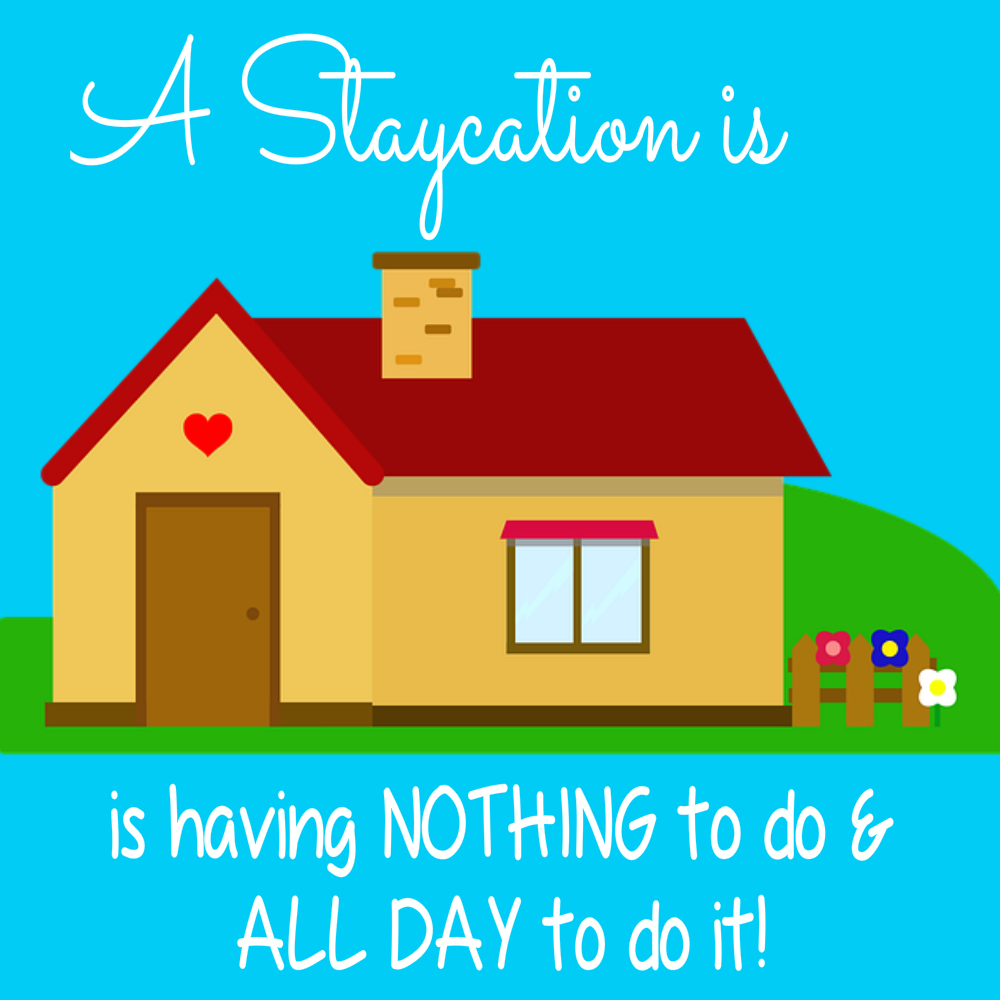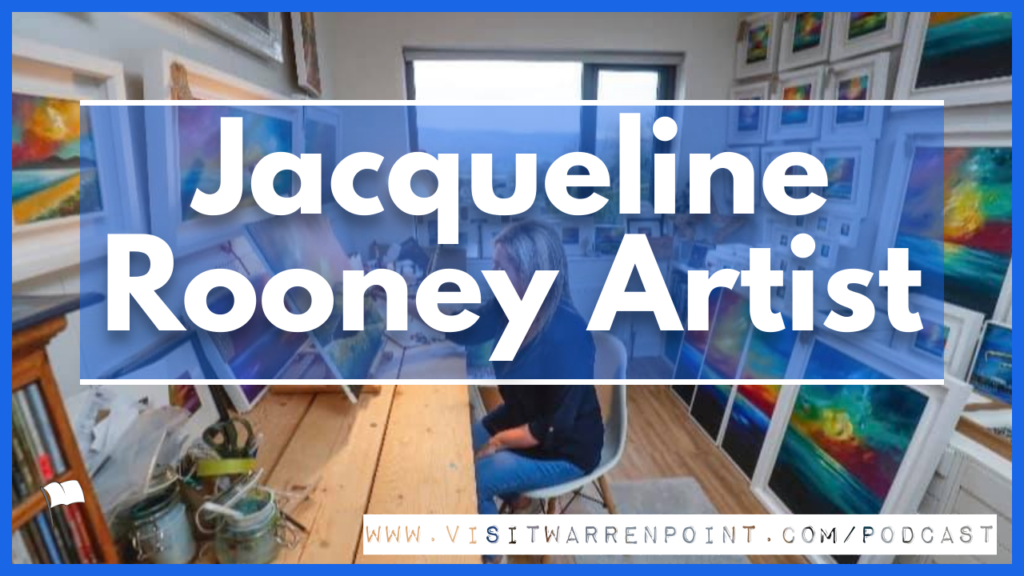The Irish Half Door: Keep the children in and the animals and Tax Man out!
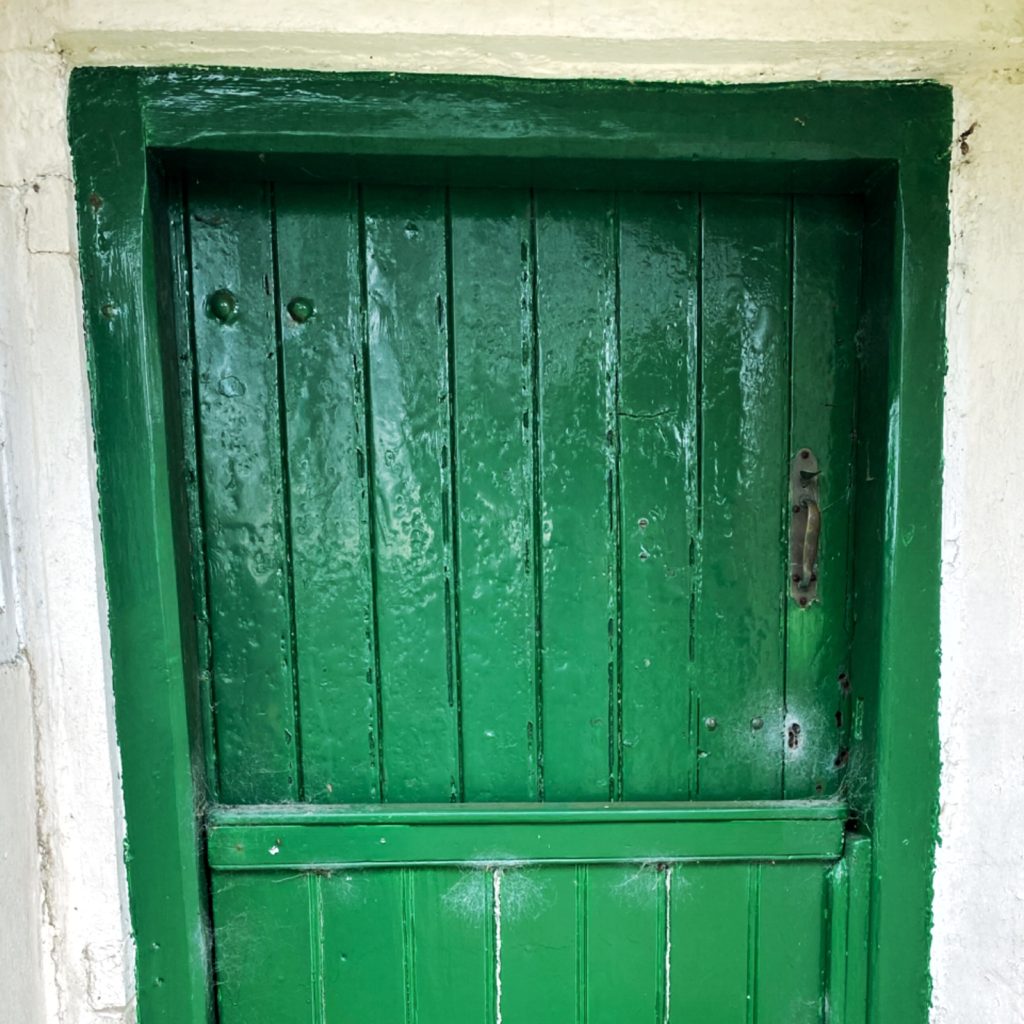
The Half Door of a cottage in Ireland transports us back in time.
You can imagine that old Irish Cottage bustling with life – the top half of door open to let a visitor know the family was at home and the daily toil of life was in full swing.
The half door kept young children in the house, safe and out of harms way.
It also kept farm animals – cattle, pigs and hens – from entering the home.
The half door provided simple ventilation allowing smoke from the fire and cooking to escape.
But there was also a clever subterfuge at play in the constant battle between the ordinary man and the system.
It stopped the Daylight robbery – not just from the opportunist thief from a King himself!
Where did the phrase “Daylight Robbery” originate?
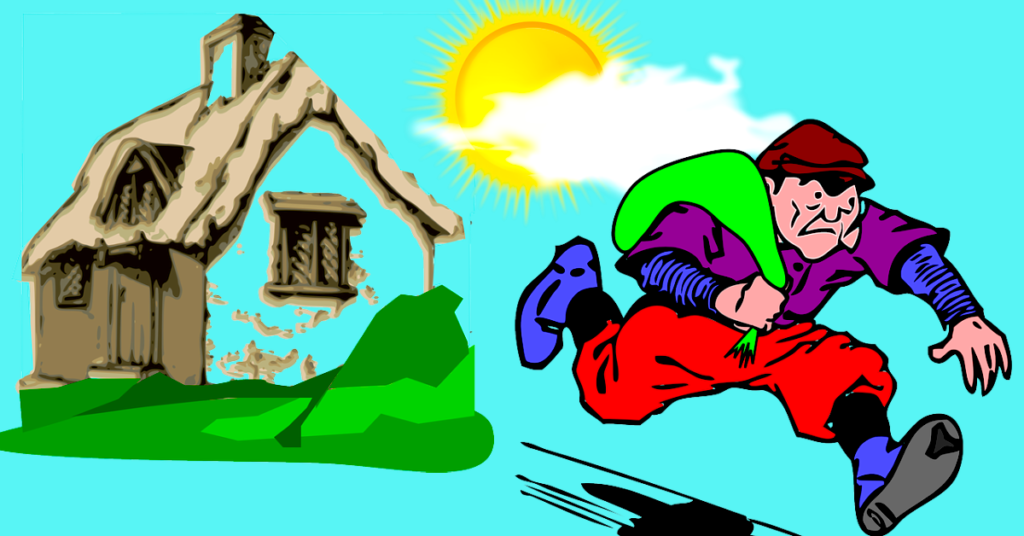
The phrase “daylight robbery” refers to the Window Tax levy imposed by William III – William of Orange – in 1689 in England.
The property tax had to be paid if you lived in a house that had more than 6 windows.
This was essentially an income tax by stealth – the more windows you had, the bigger the house, the wealthier you might be! (Even the Father Of Capitalism was suspicious of this reasoning – read on below)
To avoid this tax, home-owners would brick up windows.
This “robbed” the house of daylight and thus the phrase we use today.
Did the Window Tax apply to Ireland?
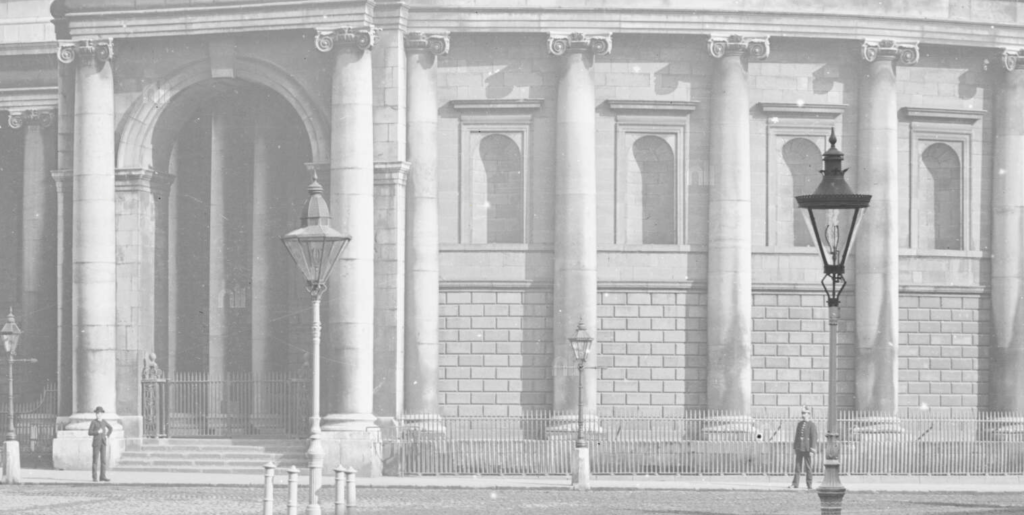
The tax was imposed in Ireland in 1799.
Next time you take a stroll through Dublin City Centre, check out the Bank of Ireland building.
Incidentally, this building housed the first Irish Parliament but was bought by the Bank of Ireland in 1803 after the Act of Union.
When the Bank took over the building, they bricked up the windows.
The frame space for windows were bricked up to avoid the imposing cost of the Window Tax which had skyrocketed by 1797.
You can still see the bricked up windows of the old buildings today!
If you ever wondered why they are not glazed, now you know the reason!
It was money, not architecture!
Where the Cooleys and The Mournes sweep down to the sea
Window Tax: was it just a tax on the wealthy?
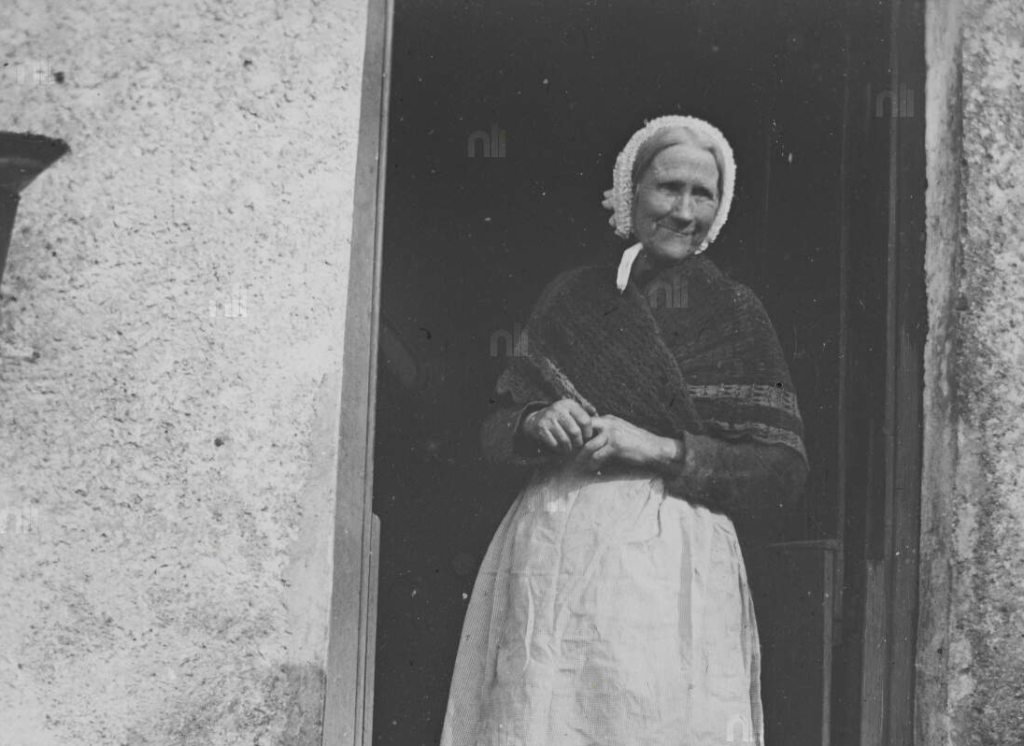
The Window Tax had an impact on everyone.
The father of Capitalism himself, Adam Smith recognised the inequity of the window tax scheme in Wealth of Nations (1776)
A house of ten pounds rent in a country town, may sometimes have more windows than a house of five hundred pounds rent in London;
and though the inhabitant of the former is likely to be a much poorer man than that of the latter, yet, so far as his contribution is regulated by the window tax, he must contribute more to the support of the state.
Charles Dickson in 1850 was even more scathing in his attack on a tax on air and light on the poor:
We are obliged to pay for what nature lavishly supplies to all, at so much per window per year; and the poor who cannot afford the expense are stinted in two of the most urgent necessities of life.
The Irish Cottage Half Door
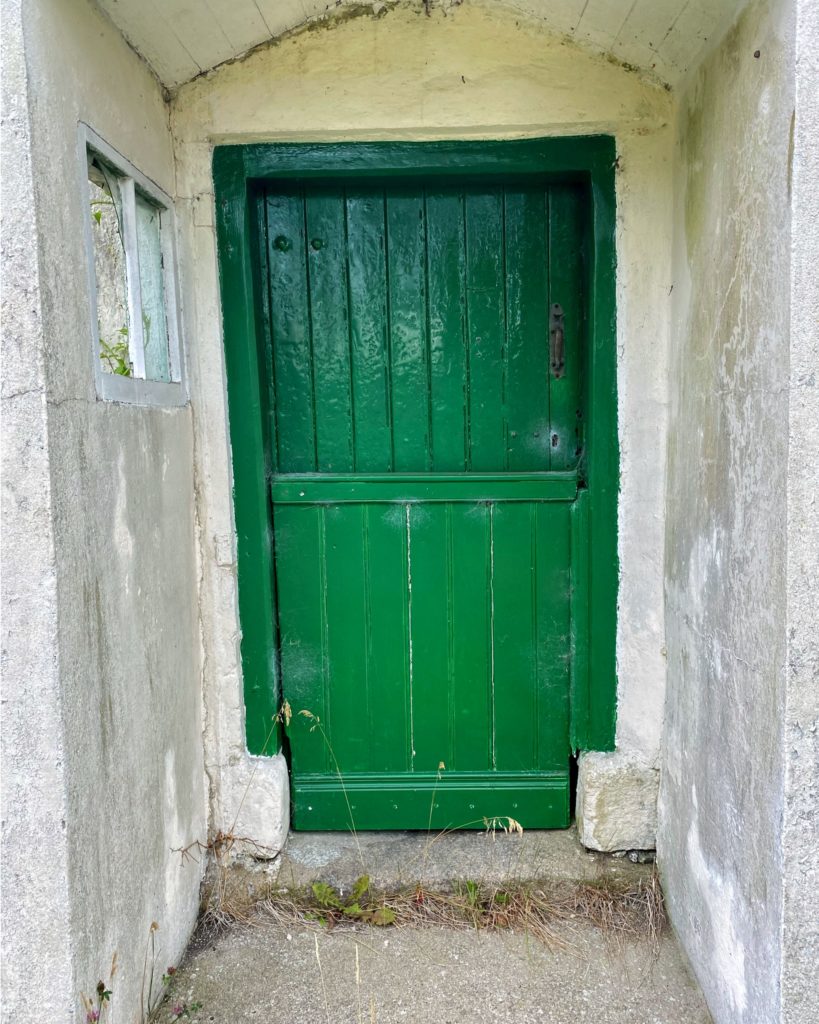
The Irish Cottage Half Door is the stuff of picture postcards and a sentimental look back at a time in Ireland long since gone.
However, the half door wasn’t there for the postcard pictures, it was very much a function of everyday life of work, life and play.
The half door can be found throughout the world, throughout the ages as a simple but ingenious way to manage a busy household.
You could keep the kids in!
Keep the animals out!
Let smoke from cooking and the fire escape and light into the house.
The top half of the door was taken off and used as a platform for dancers when the music session was in full swing.
THE CLEVER BIT- When one door close, another opens!
Letting light into the house via the Half Door was a shrewd, lawful way to avoid paying the window tax.
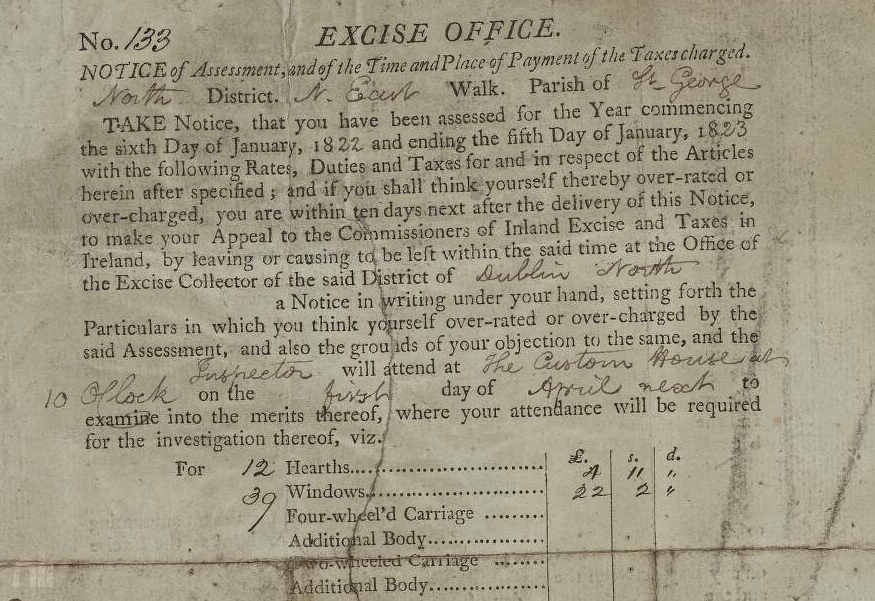
In the extracts from the MOTION FOR THE REPEAL OF THE WINDOW TAX IN IRELAND Debate in 1819, you will see the onerous nature of the Window Tax and the “gross abuses” of “inquisitorial power” that caused such opposition to the tax:
“The words of the act are, that the collectors can demand an entrance into every room in every house in Ireland, from day-light until sunset, and insist upon admission, under a penalty of 20l.
I leave it to the House to reflect to what gross abuses an inquisitorial power of this kind might eventually lead. Is not this one provision in itself sufficient to make the tax odious to a people jealous of their liberties?”
The Window Tax and Epidemic
2020 has been a year were a global pandemic has been front and centre in all our minds.
In 1819, doctors were already raising concerns of the lack of ventilation in homes due to windows being closed up to avoid the Window Tax and the effect on people’s health.
Dr. Parker, in his report on the Epidemic Fever for last year, has the following passage:—”I have observed the back windows of houses where fever prevailed, closed up, to avoid the window tax, as I was informed by the inhabitants. In vain was it represented that they would be indulged with exemption from the tax on making application to the commissioners of the revenue.
The Window Tax was not repealed until 1851.
The adage ‘free as air’ has become obsolete by Act of Parliament
Charles Dickens Tweet
Cradle Song!
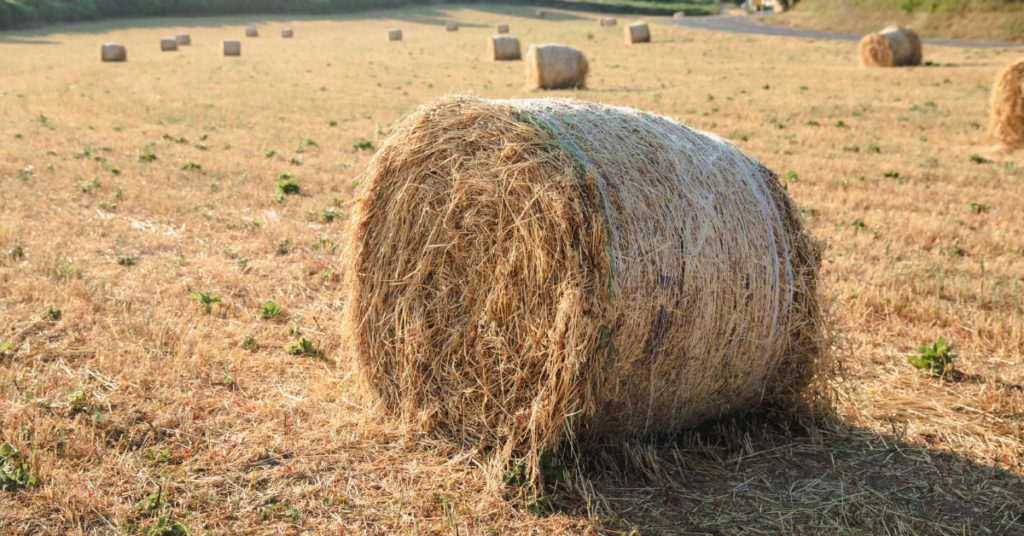
This is a lovely poem by the Irish Poet, Padraic Collum (He wrote the famous ” She moved through the Fair) called the Cradle Song.
It is about the men returning from work in the fields to welcome the birth of a new baby into the world.
The Cradle Song featured in an Irish Times 100 Favourite Irish Poems Poll.
Our half door features in the poem.
O men from the fields,
Come gently within.
Tread softly, softly
O men coming in!
Mavourneen is going
From me and from you,
Where Mary will fold him
With mantle of blue!
From reek of the smoke
And cold of the floor
And the peering of things
Across the half-door.
O men of the fields,
Soft, softly come thro’
Mary puts round him
Her mantle of blue.
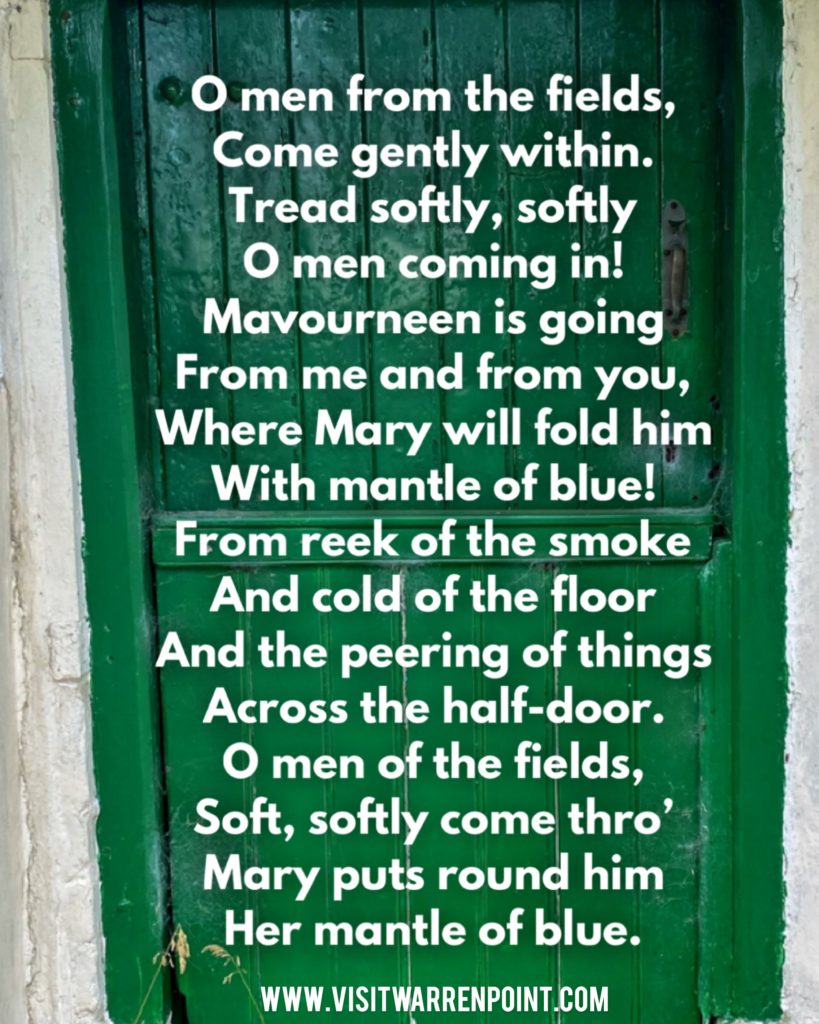
Padraic Collum's She Moved Through The Fair by Sinead O'Connor
Check out the Stunning Mournes
Check out some of our Wonders Below

Carlingford Lough
Carlingford Lough LIVES & LEGENDS Sweep Down to the Sea Both the Mountains of Mourne and the Cooley Penninsula sweep down to the sea inlet, Carlingford Lough. The Shores of

Blues on The Bay Festival Warrenpoint 2023
Blues on The BayVideo Gallery IRELAND’S COOLEST MUSIC FESTIVAL! https://www.youtube.com/watch?v=X_eEWr87kbk Warrenpoint Blues Fest ” Wow!!! This is one hell of a town for a Blues boogie, a pint and a

Wake The Giant Warrenpoint 2022
WAKE THE GIANT 2023 Saturday 19 August The Land of Giants Warrenpoint Municipal ParkLive from the Bandstand11.00am – 12.00noon – Dixieland Casino Jazz Band12.30pm – 1.30pm – Ursula Burns2.30pm –
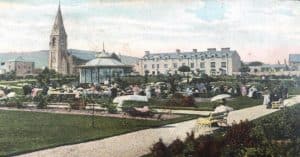
Warrenpoint Municipal Park Reopens in 2018
Warrenpoint Municipal Park : the heart of Warrenpoint Town Warrenpoint Municipal Park Warrenpoint Municipal Park is an Edwardian Park opened in 1907. It has been the heart of Warrenpoint Town
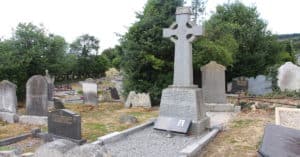
Patrick Murphy, The Irish Giant, The Tallest Man in the World – Buried in Rostrevor!
Patrick Murphy, The Irish Giant, The Tallest Man in the World! The Mourne Giant Patrick Murphy’s final resting place in Rostrevor Co. Down. You can watch the video below of
Where did the word Staycation originate?
The Staycation originated in America after the Global Recession of 2008.
People were spending less money because of job losses or fear.
But it does not just have to be for those on low budgets – it’s about getting to really know your own locality, explore the local culture .
I try and see our area through the eyes of a visitor and everytime I do, I just go "Wow"
Facebook Commenter Tweet
The Benefits of a Staycation
- You save money
- You are revitalising your local economy in tougher times!
- You know the lie of the land
- Who needs airports anyway??
- Short stays do not need a fortnight worth of luggage – travel light.
- Flexibility – you can decide to change the plan at a moments notice.
- It’s good for the Environment – less pollution
- Focus on the important things – family time!
- Reset our values –
- Slow Tourism taps into a more relaxed rhythm of life
- Learn about the community we visit at a deeper level!
- You can go home quickly if it is not working out!




